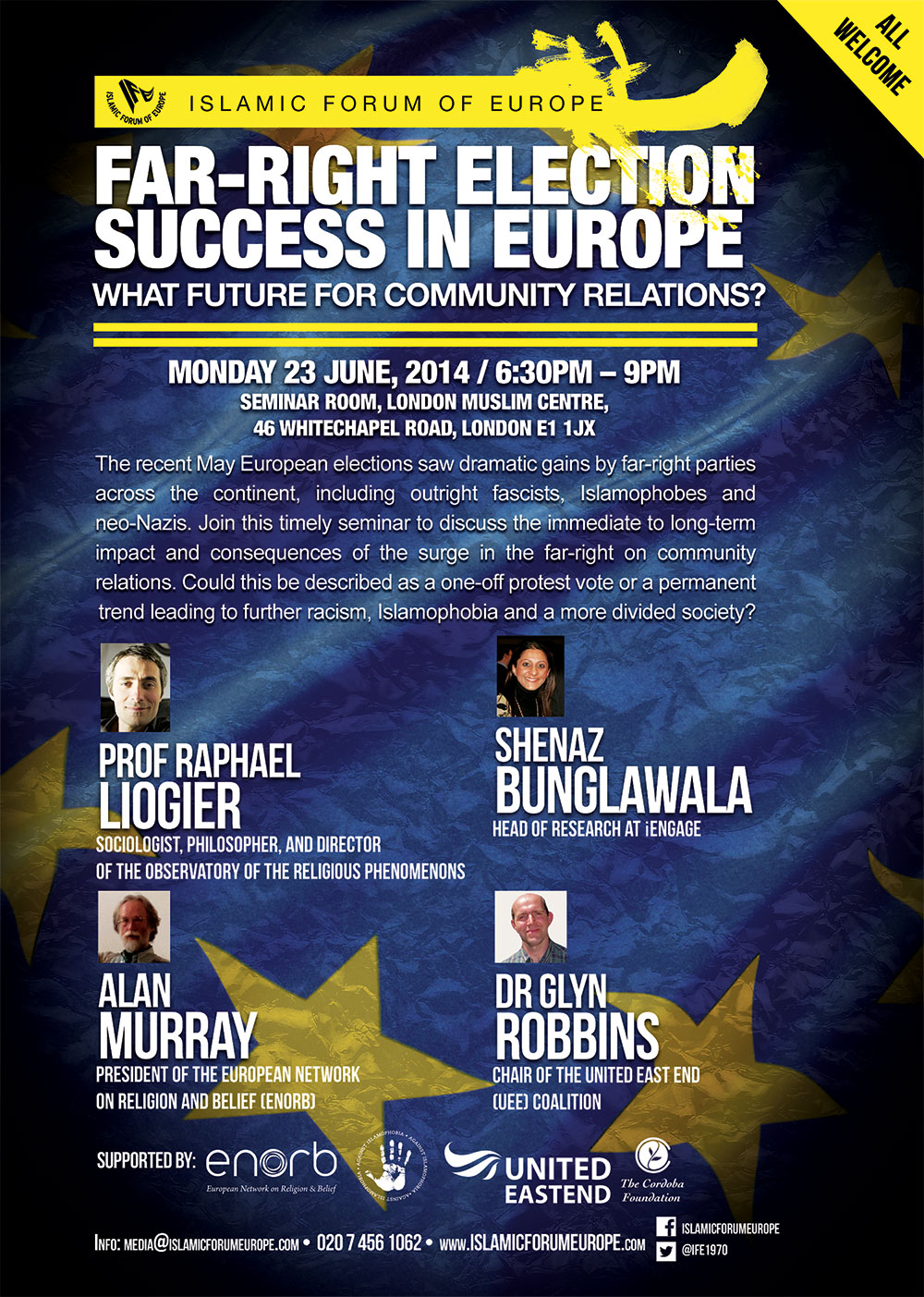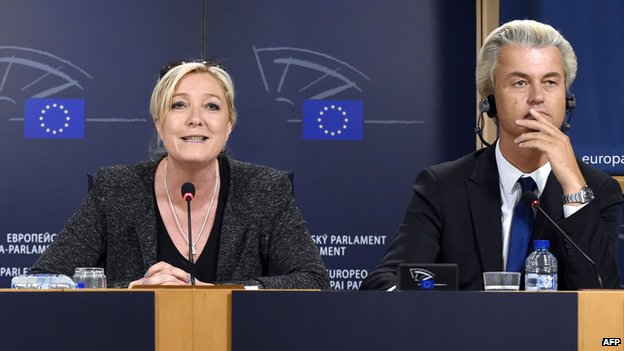 France’s far-right National Front (FN) has failed to form an alliance with the Dutch Freedom Party (PVV) of Geert Wilders, reducing both parties’ influence in the European Parliament.
France’s far-right National Front (FN) has failed to form an alliance with the Dutch Freedom Party (PVV) of Geert Wilders, reducing both parties’ influence in the European Parliament.
Pan-European party blocs get more funding, staff and speaking time in the parliament. The deadline for forming a bloc expired on Monday night.
The new 751-seat assembly, elected in May, holds its first session next week.
The UK Independence Party (UKIP) has formed a bloc with other Eurosceptics. UKIP’s new allies are the Italian Five Star Movement of comedian-turned-politician Beppe Grillo, Lithuania’s Order and Justice Party, the nationalist Sweden Democrats and a few anti-EU MEPs from Latvia, the Czech Republic and France. Jointly they are called the New EFD (Europe of Freedom and Democracy).
Under parliament rules, a faction has to consist of at least 25 MEPs from a minimum of seven EU countries. The EU has a total of 28 member states. The FN and PVV failed to satisfy the seven-country rule.
Before the election Mr Wilders and FN leader Marine Le Pen had spoken of their common ambition to return powers from the EU to the nation states.
Ms Le Pen’s triumph, leading the FN to first place in the French election, gave her party 23 seats. It was one of the biggest surprises on an election night that saw big gains for anti-EU parties across Europe. In the last parliament the FN had just three seats.
Mr Wilders was disappointed with the PVV’s result, however. The party won just three seats and fell to fourth place in the Netherlands – well behind liberal and centre-left, pro-EU parties.
Both the FN and PVV want tougher immigration controls, reject the euro and want their countries to leave the EU. Both parties also campaign strongly against the spread of Islam in Europe.

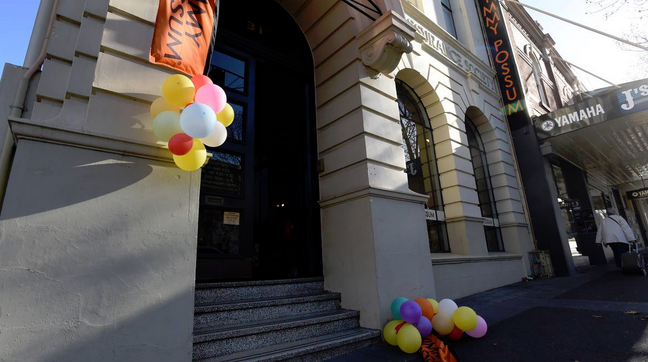 Members of the local Muslim community, a Bendigo business and a city councillor are among those to have received supposed threats from anti-Islamic protesters in recent days.
Members of the local Muslim community, a Bendigo business and a city councillor are among those to have received supposed threats from anti-Islamic protesters in recent days.
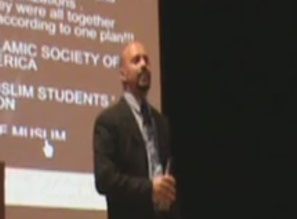 The Minnesota chapter of the Council on American-Islamic Relations (CAIR-MN) today called on the Bagley Independent School District #162 to rescind approval of tonight’s speech by Islamophobe Usama Dakdok following harassment of a Muslim woman by a “mob” at his earlier speaking event at the same school on Sunday.
The Minnesota chapter of the Council on American-Islamic Relations (CAIR-MN) today called on the Bagley Independent School District #162 to rescind approval of tonight’s speech by Islamophobe Usama Dakdok following harassment of a Muslim woman by a “mob” at his earlier speaking event at the same school on Sunday.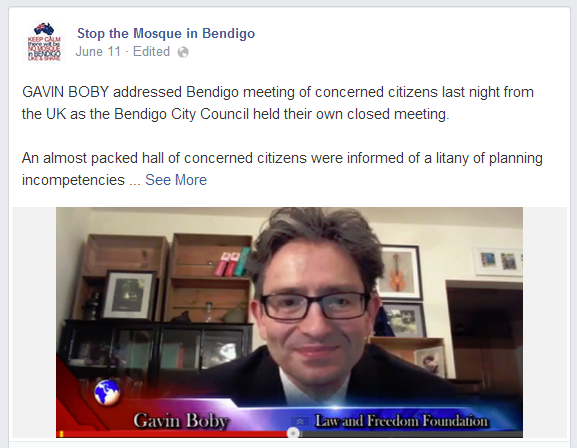 A UK adviser to opponents of a proposed mosque in Bendigo is known as a “mosque-buster” who boasts of his record of using planning laws to block mosque applications.
A UK adviser to opponents of a proposed mosque in Bendigo is known as a “mosque-buster” who boasts of his record of using planning laws to block mosque applications.